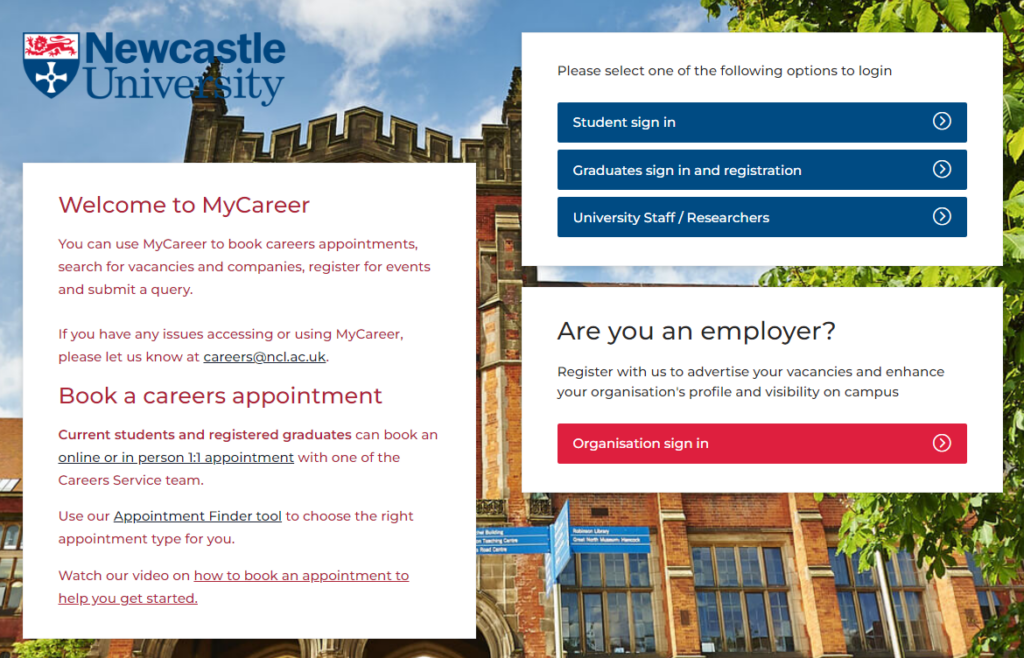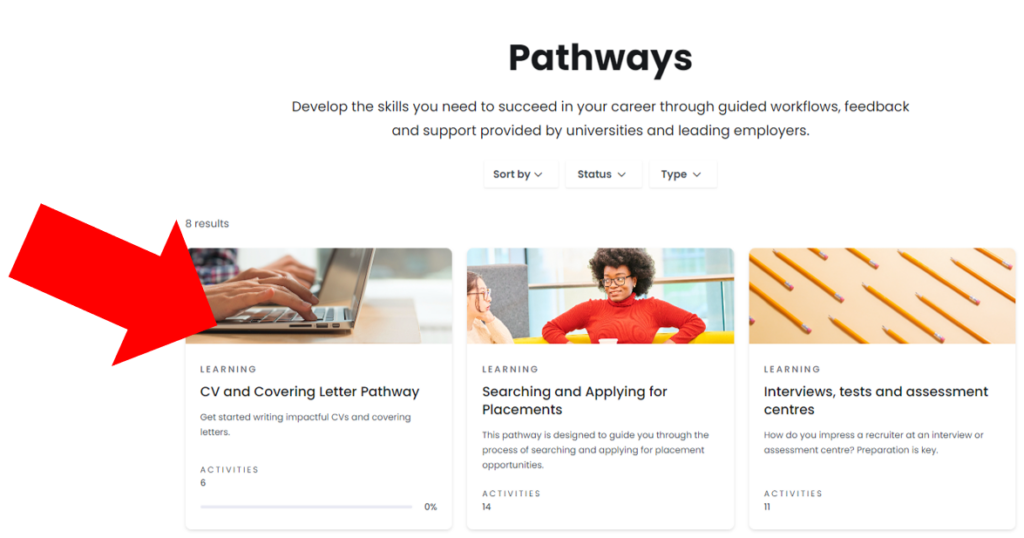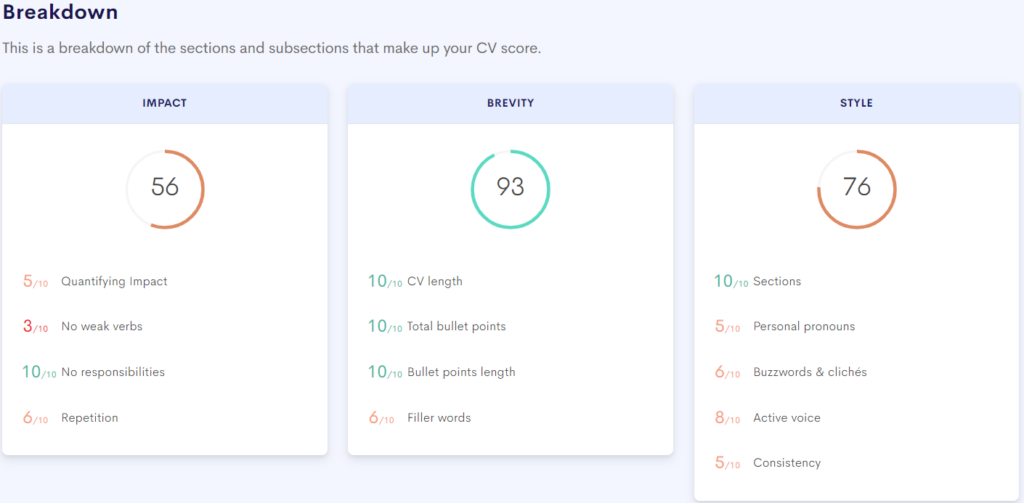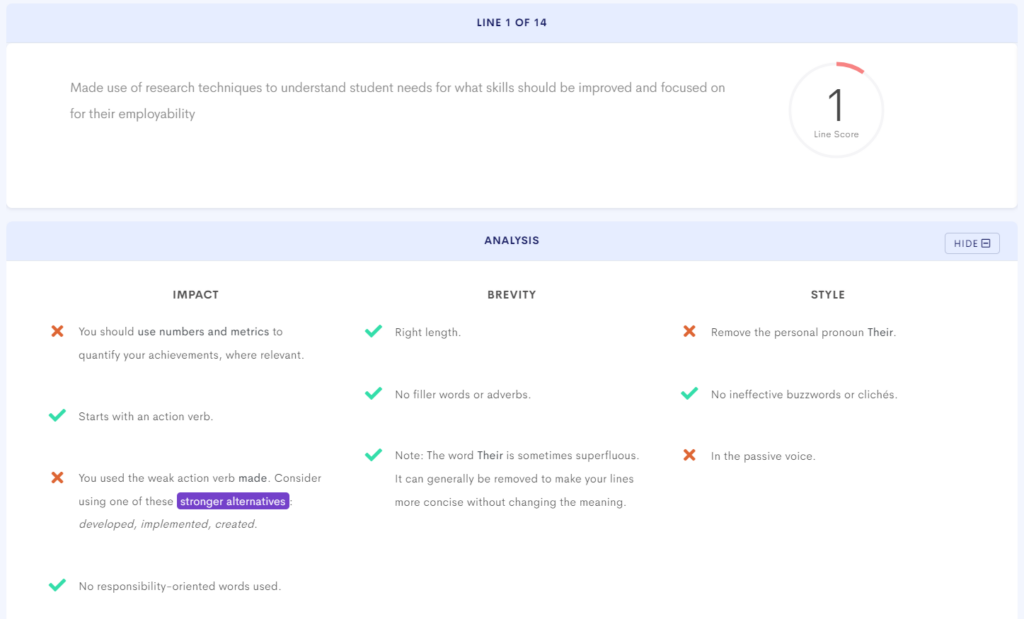For those of you who haven’t used the careers service much, you might not know about the abundance of resources it has to help you build up and develop your CV. Even if you’ve never made one before, the careers service offers tons of help. I tried out their resources for this and this is what I found out.
Before writing this blog post, I hadn’t put too much thought into my CV. Sure I had previous versions used to apply for certain roles, but nothing I was overly happy with and certainly something I wasn’t confident about showing employers. But by spending an hour or two using the university’s CV-building resources, I was able to build a professional-looking CV from scratch. And there is nothing stopping you from doing the exact same thing.
I don’t intend to give a word-for-word recounting of what resources are available to use, the careers service already does a fantastic job of that. Instead, let’s look at what I found most helpful.
CV and Covering Letter Pathway
The MyCareer page is not really something I’ve spent much time using other than casually searching for job or internship opportunities, so I found myself pleasantly surprised to find that there is so much more here. There are different pathways to help develop certain skills which will massively improve your employability, and one just happens to be about CVs. Let’s navigate to it first and then talk about what it has to offer.
Step 1
Log into MyCareer using your student email address

Step 2
Select Pathways

Step 3
Select CV and Covering Letter Pathway

If done correctly, you should see a series of steps to complete to get you on the road to a fantastic CV.

I want to draw your attention specifically to step 3, Create your CV and covering letter, as it has an extremely useful resource that I find myself consistently going back to.

I’m of the belief that the CVs and Covering Letters Workbook is the bible of the employability world. This nifty little document is packed full of tips and steps to follow when building your CVs and covering letters, giving insights and templates for key areas like work experience and education. It provides a list of action words to really make your CV pop out to employers and even a checklist to use to critique and improve your own CV. There is something here for everyone so even if you don’t use it to make your CV, I wholeheartedly recommend looking when you want to take your application to the next level.
CareerSet
With your university account, you get access to the fantastic tool called CareerSet. This tool gives you instant AI-generated feedback on your CV, at any time of the day.
When you upload a PDF copy of your CV, CareerSet analyses it against key stills recruiters are looking for, specifically impact, brevity and style. You can make changes based on the feedback given and then resubmit it again straight away.
CareerSet scores your CV based on a percentage. Try to aim for at least 70% as that should give an indication that you are on the right track.
Initially, I was worried about what kind of feedback this AI tool would give me for my CV, and I was half expecting something generic, but I found myself pleasantly surprised. CareerSet breaks down the issues with your CV into clear sections, giving an indication of which areas need improvement, and which you are already doing well with:

It also gives a brief summary of where you went well and what you can improve next:

One of my favourite bits of the tool is the Line-by-Line analysis which breaks down your CV and gives suggestions on how you can improve each line. It is excellent when you are redrafting your CV and ensures the language you are using is engaging:

If you want to go a step further, CareerSet also allows you to tailor your CV to a specific role by searching for keywords in your file to see if they are in the job description. While this isn’t guaranteed to make your application successful, it will definitely help you stand out and get through the initial screening process for CVs, something usually done with AI!
It is important to note that CareerSet only works for chronological CVs, so more creative or skill-based CVs won’t work as well. Luckily enough though, the university provides 1 on 1 sessions with CV advisers so you can get an extra level of feedback.
Feedback from a CV adviser
I booked one of these sessions and was able to get a time slot only a day afterwards. And while the workbook and CareerSet were invaluable tools, this was probably the best help. The 20-minute session almost imitated how an employer would look at your CV, going through it quickly to get an idea of what works, what doesn’t and what doesn’t stand out. They took the time to explain why certain things worked and why certain things didn’t, rather than just what should be changed (like with the AI tool). Key tips like evidencing all your skills in your CV, using as many technical terms as possible and focusing on content rather than visuals were some of the most helpful things I learned. I highly recommend booking one of these appointments as while an AI tool can be helpful, there is nothing more helpful than another pair of human eyes looking through your work.
Hopefully, by the time you finish this article and have tried each of the things recommended, you will have a CV you are happy with and confident to show employers. Be sure to tailor your CV to each of the roles you are applying for. This might sound like a tall order, but the more you do this, the easier it will be to adapt. Best of luck in all your job applications!






